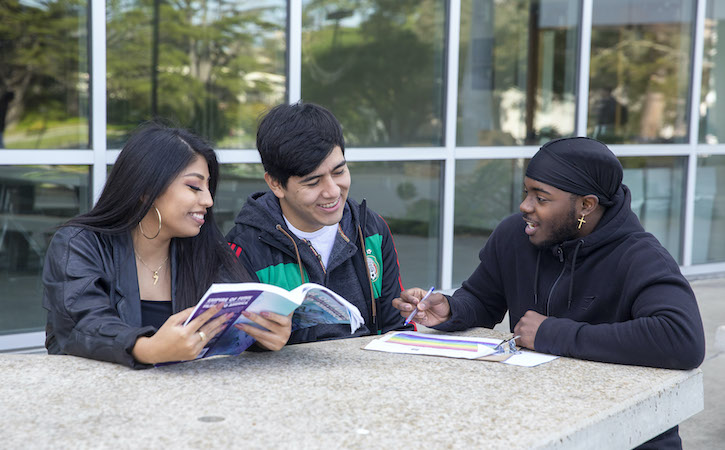Undergraduate Outcomes
Students majoring or minoring in a Modern language will become proficient in the target language, understand elements of the target culture, acquire knowledge of literature, and be able to analyze language structure.

A. Language Skills
- A1: Listening Comprehension: Student can understand the utterances of native speakers and extract main ideas from recordings of authentic speech, including excerpts from lectures, films, radio and television broadcasts.
- A2: Reading Comprehension: Student can understand and summarize main ideas in target language texts intended for general readers, including social correspondences, general purpose essays, short stories and news writing.
- A3: Speaking: Student can sustain a conversation on a general topic with a fluent speaker of the target language, narrate and describe on a variety of topics at paragraph length and respond to spontaneous developments in an exchange.
- A4: Writing: Student can produce narratives and descriptions, cohesive summaries and routine social correspondences (e.g. business letters, resumes), demonstrating awareness of diction, syntax and stylistics in the writing process.
B. Cultural Knowledge
- B1: Student has an understanding of cultural values, folk beliefs, social conventions and festive celebrations unique to target culture.
- B2: Student can identify and characterize exemplars of painting, architecture, music, film and other fine arts in the target culture.
- B3: Student can identify major historical events and order them chronologically.
C. Knowledge of Literature
- C1: Student can identify major literary genres.
- C2: Student can characterize major literary movements or periods and order them chronologically.
- C3: Student can identify major historical events and order them chronologically.
D. Language Structure
- D1: Student has understanding of sound system (phonetics/phonology) of the target language.
- D2: Student has understanding of word-formation processes (morphology) in the target language.
- D3: Student is familiar with syntax of the target language.
- D4: Student has understanding of the historical development of the target language.
- D5: Student has understanding of sociolinguistic variation in the target language.
Graduate Outcomes
Graduate students will be proficient in written English, appropriately use resources and materials for writing research papers, and have a greater knowledge of culture and language at the advanced level.

A. Proficiency in Written English (Entry Level)
- A1: Student admitted into each program must demonstrate, prior to the start of coursework, the ability to write English correctly and effectively to explain, defend or argue discipline-specific issues.
B. Proficiency in Written English (Exit Level)
- B1: Upon completion of each program, candidates must demonstrate an improved ability to write English correctly and effectively to explain, defend or argue discipline-specific issues commensurate with the academic training received within the program.
C. Use of Appropriate Resources, Materials and Format for Writing a Research Paper
- C1: Students must demonstrate the ability to produce effective academic writing based on scholarly research.
D. Knowledge of Culture, Language and Literature at the Advanced Level
Students must be able to:
- D1: Demonstrate graduate-level competence in the concentration language.
- D2: Analyze texts for theme, structure, style and other aspects of prose and poetry.
- D3: Explain how literary movements influence each other and are shaped by history.
- D4: Demonstrate interdisciplinary approaches when analyzing complex problems and intellectual questions.
- D5: Demonstrate knowledge of the present day structure of the concentration language, including the phonetics, phonology, morphology, syntax and discourse features.
- D6: Demonstrate knowledge of the historical development and sociolinguistic variations of the concentration language.
- D7: Demonstrate the ability to develop basic skills as teacher-researcher while applying theoretical knowledge to practice, and to implement standard-based Second Language Acquisition (SLA) instruction.